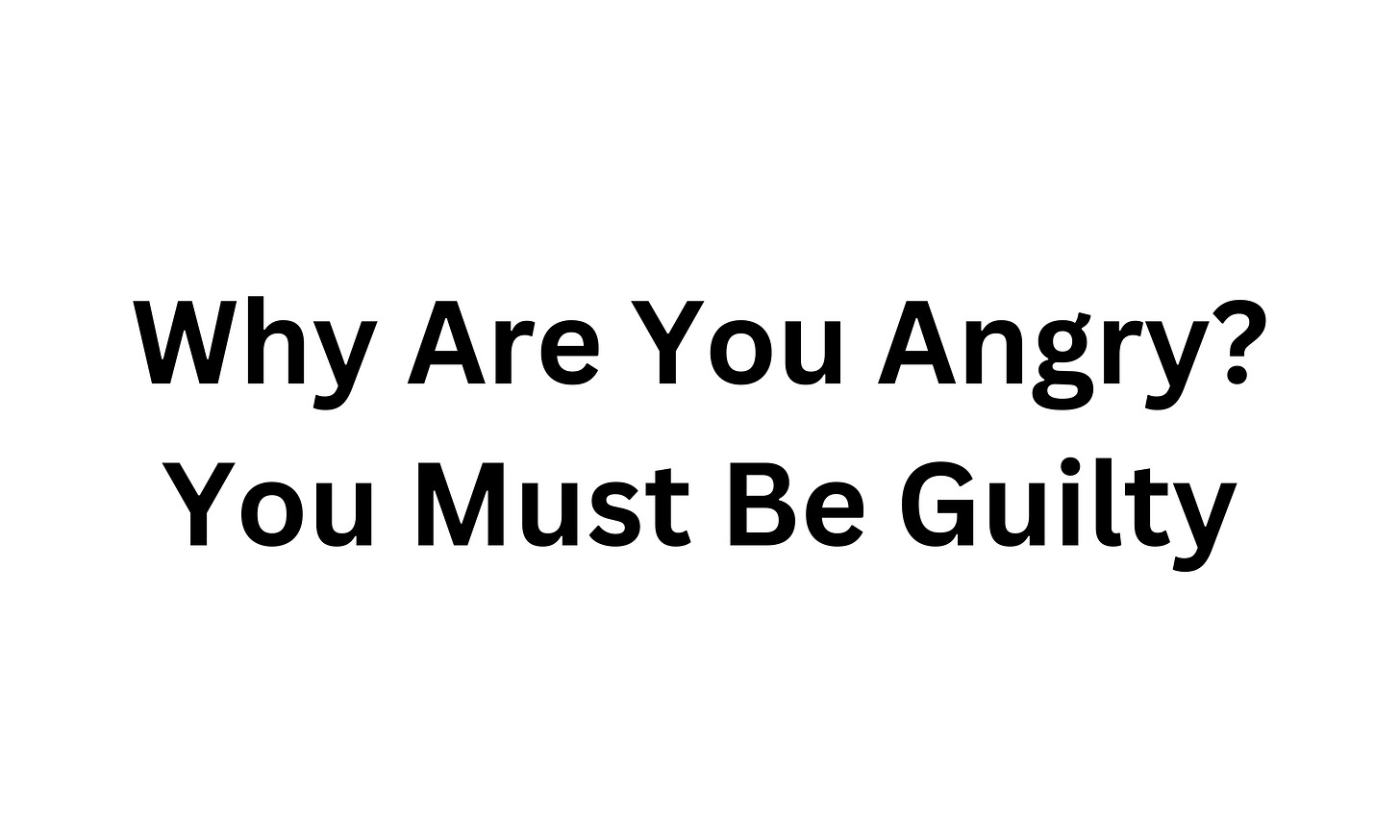When a Wrongly Accused Person is Falsely Judged Guilty
Biases and hunches in complex situations can lead to people easily coming to wrong conclusions
Source: Why Anger Makes a Wrongly Accused Person Look Guilty
by Michael Blanding at Harvard Business School’s Working Knowledge publication
People do get falsely and shamefully misjudged for acts they didn’t commit. They might even suffer punishment for it. When they might react with anger over this mistreatment, they can come across as more guilty.
This confirmation bias by observers is a life reality that must be traversed.
“People may misinterpret that anger as a sign of guilt,” says Harvard Business School professor Leslie K. John, whose paper Anger Damns the Innocent has been published in the the journal Psychological Science,” Michael Blanding reports.
“In a series of experiments, John and her colleagues—Katherine DeCelles of the University of Toronto, Gabrielle Adams of the University of Virginia, and Holly Howe of Duke University—found that anger can make a person come across as guilty even when they are not.”
Imagine how it feels: Being judged as have committing a wrongdoing of some kind, knowing that the claim is incorrect, becoming upset about it and expressing it and then having the accusers or other observers determine that your reaction confirms you committed whatever was deemed wrong.
“Such an unfair judgment,” Blanding writes, “can have grave consequences, affecting the accused person’s career and even leading to job loss.”
In studies, participants concluded that “the angrier the participants considered the accused, the guiltier they believed them to be,” Blanding writes. “To help explain this effect, the researchers also documented that people who express anger appear untrustworthy and less authentic.”
It’s not just heated anger that brings about this faulty conclusion.
“A separate experiment showed that this judgment happens even when an accused person expresses mild anger—in the form of irritation. In short, people tend to deem anger, even when subtle, to be indicative of guilt,” Blanding reports.
Researchers however wanted to test whether anger was regularly a sign of guilt. They discovered that it isn’t the case.
"IT SEEMS TO BE INHERENTLY MORE AGGRAVATING TO BE ACCUSED OF SOMETHING YOU HAVEN’T DONE BECAUSE THERE’S THE ADDED ELEMENT OF IT BEING UNJUST."
The researchers recommend a plan of responsive action to serve you well.
“When being accused, we know from other research that it is good to indicate a willingness to be cooperative,” DeCelles says. “Anger seems to signal the opposite to others—that you’re hiding something.”
A warning though: DeCelles emphasized that “those who are guilty might express anger, perhaps as a strategic attempt to look morally incensed, being angry at procedural issues rather than the accusation itself, or even not accurately remembering their transgression. But the research shows that, on average, the falsely versus correctly accused seem to both feel and express anger more strongly.”
Reputation Notes Analysis
The research findings in this article are important to remember. While bad actors can and do fake outrage, people who are not responsible or guilty of accusations or allegations can respond in less than an impressive manner because it is being communicated to them that they did something they didn’t do and because being falsely accused and poorly judged hurts emotionally and psychologically and is considered another attack on them and their character.
Michael Toebe is a reputation consultant, advisor and communications specialist at Reputation Quality, assisting individuals and organizations with further building reputation as an asset or ethically protecting, restoring or reconstructing it.
He is also the writer and publisher of the Reputation Notes newsletter on the Substack and LinkedIn platforms.
Subscribe for free or subscribe for “extras,” whichever works best for you.
Want your services or products to be seen in Reputation Notes or discuss a partnership? Let’s talk about it to see how you can benefit.
Contact me (Michael) at Reputation.Notes@gmail.com and you and I can talk about your objectives and value offering and create an impressive visual ad and message to prominently, impressively display in the newsletter for a month at a time, or longer.
$475 for an ad for two issues of the newsletter. Links to your About page, landing page or home page are $250 (one issue of the newsletter) per link.
Note
Reputation Quality Services: Professional Opinion — Consulting — Ongoing Advisory and Reputation-Related Communications



